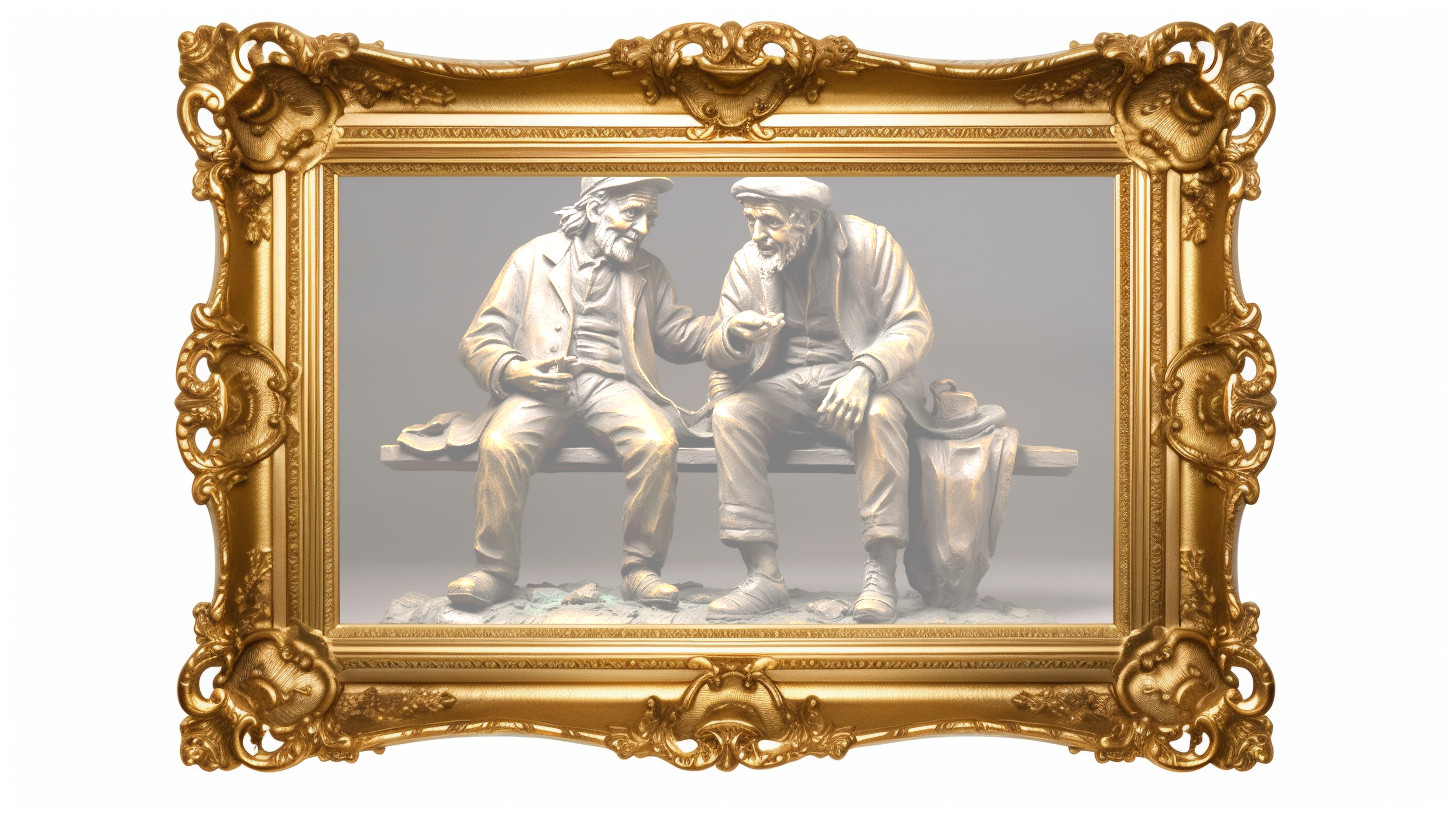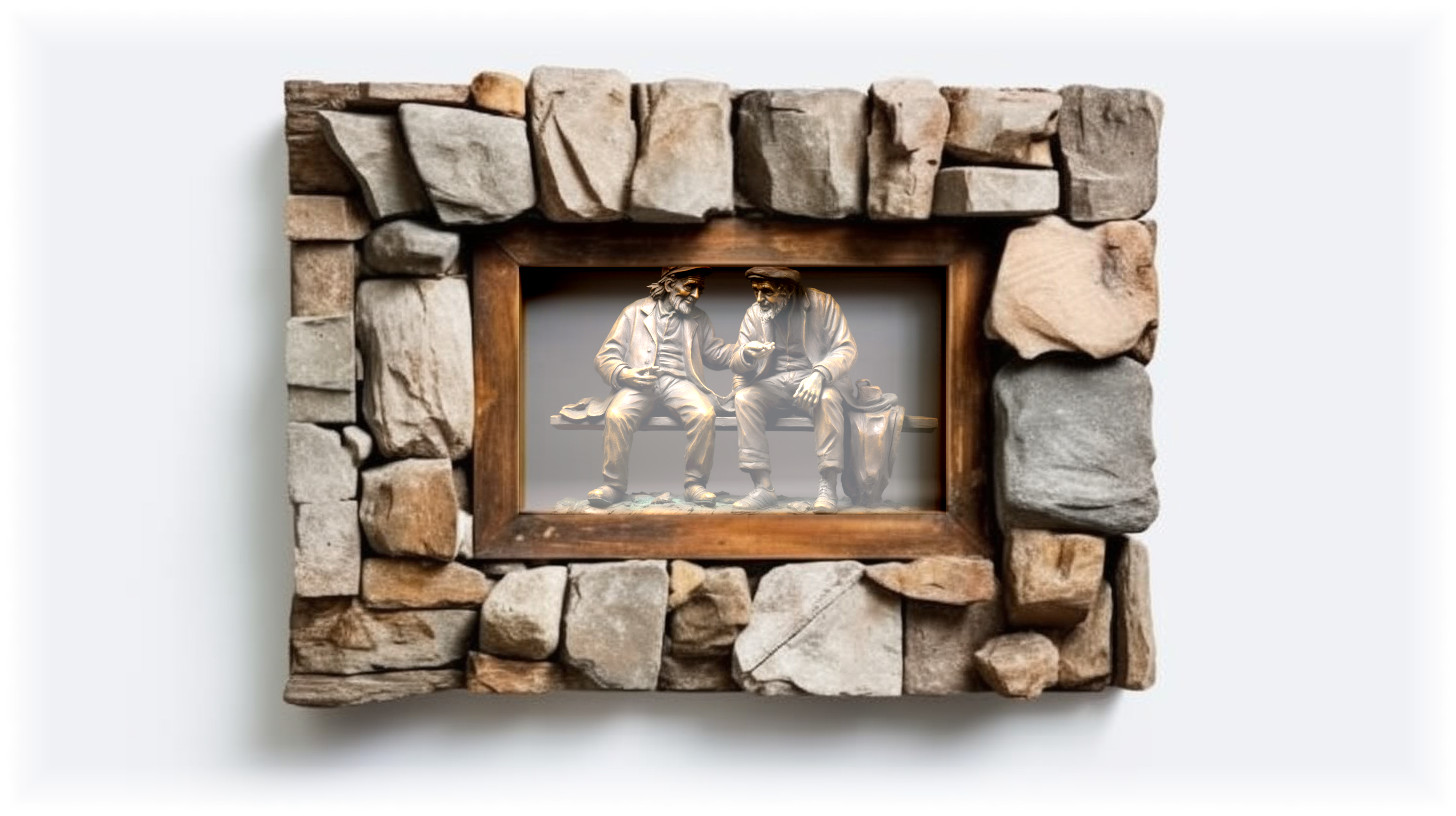The comprehensive guide on how to choose your perfect mentor or coach

Welcome to your comprehensive guide on how to choose the perfect mentor!
In this article, you’ll find a list of points that are worth looking into when looking to hire a professional coach. If you’re looking for someone to work with in order to live a fuller and more peaceful life and don’t know where to start, let me assure you, I know just how you feel.
In 2017 when I wrote this guide I read an article that in the United States alone there had been more than 15,000 coaches offering their services. The Covid-19 Pandemic has led to almost exponential growth in this industry because of many factors. The increased suffering due to lockdowns, the absence of “pacifying” coping strategies, as well as opening up to digital and online formats are only a few explanations.
Since there are so many people out there who are claiming to be able to guide us to our goals of happiness and a fulfilling life, it’s worth asking ourselves some questions.
Let’s not forget that, among other things, coaching is a trust-based service that makes it difficult to review objectively. The sheer multitude of coaches can be overwhelming. If it was me who had to decide if I wanted to hire a coach, I’d be tempted to abandon my plans and procrastinate some more.
But this is the comprehensive guide to finding the perfect coach, so there’s hope for you yet!
After you finish reading this guide you’ll have a solid idea of what to look for and what services might not work for you. Even if reading this makes you angry and annoyed at the same time for some reason, this guide can still be helpful. Oftentimes in life we have to experience what we don’t like in order to gain an understanding of what we do like and want to create more of.
So, there’s been enough talk already. Let’s dive straight into the Top 12 Things to consider when looking for a coach.

1) Be open minded
One of the most important things to consider when looking for your coach is to stay open-minded. When we are looking at our comfort zone in relation to what life has to offer it is a small, small bubble that we live in. It can be fairly alarming when we are in touch with this outside world that has a completely different approach to almost anything we can think of. So if you are looking to find flaws or negative affirmations in a professional or even the random people you meet on the street, chances are you will find exactly what you’re looking for.
On a slightly off-topic note, I sometimes like to refer to movies, so-called motion pictures. This is because I have spent half of my life in front of a screen (a slight exaggeration perhaps). But since I love movies and have seen them again and again, I can often draw upon their message in order to make things easier to understand. That is the great magic of movies when we watch them with an open mind. Many of you also love movies, I’m sure, as we can all relate to their stories and find catharsis in them.
So back to the topic at hand if you have not seen “Yes Man” with Jim Carrey I strongly suggest you watch it to become familiar with the idea of being open to new pathways and experiences which then become aids in transforming ourselves.
In relation to a mentor or coach, in the end, it is our judgments that form our perception of reality and the person in front of us never had a chance to show how brilliant they are if we dismissed that possibility right from the get-go.
In The Power of Now, Eckhart Tolle speaks about how we often overlook teachers of presence and great masters because they are quite ordinary or “unremarkable”.
Our ego is often looking for flashy and shiny stuff. This is what is often capitalized on in marketing campaigns. Subconsciously we want something that we wish the service or product is transferring to us. So when I see the executive coach on YouTube sporting a Lamborgini, the ego in me tells me, “When learn from this guy, I will become this guy.”
Unfortunately, there are too many pitfalls in it to talk about in this guide. I wrote a special dealing with the topic. You can find it here.
So maybe for a change, we could look at offers that seem undistinguished as unsuspicious and those who come along with drums beating and trumpets sounding as something to tread carefully with.
No matter what is the case, stay open to the process, trust your intuition and even if we get burned, we can rest in the fact that, this too is part of the process if we allow ourselves to see the lesson in it and how we intend to proceed from there.

2) Chemistry
Like every service, it’s important that you feel comfortable with the person that is sitting next to you. But the chemistry between a coach and a client goes far beyond that. Chances are you’ll most likely be disclosing your deepest and most hidden aspects of your personality to that person. And in most cases, these aspects are hidden to us as well. I can almost guarantee that if you notice these aspects at all, you may chose to overlook or skip them if you feel you cannot trust the person in front of you.
Even after working with my mentor for six years I still have to consciously step beyond that threshold in one-on-one sessions and assure myself that she has always given me fair treatment and has never taken advantage of the knowledge I shared with her. It’s quite the reverse actually. I have always benefited the most after opening up and speaking freely. But this relationship depends on mutual trust and respect.
Look for a person you feel drawn to and spend some time in a free consultation, which most professional coaches and mental health trainers offer.
Some years ago I tried out behavioral therapy and in the first session I talked about the things I wanted to change. But as I opened up I felt demeaned and judged by my therapist. I made the decision, however, to stay and work with her, because waiting lists to get an open slot in any therapist’s office had been up to six months at that time. I didn’t do either of us a favor because I was holding back and only disclosed the bare minimum instead of speaking freely.
Two things are important to remember when it comes to chemistry:
A) Don’t work with someone you feel uncomfortable with, no matter what the reasons might be.
B) If you find someone that you do like to work with, but you have to wait in order to get an open slot, it might be worth the wait because it will make you feel better when you do actually start to open up freely.

3) “Be skeptical…”
I borrowed one half of this sentence from Don Miguel Ruiz’s book “The Fifth Agreement”. If you haven’t yet read his books I can only recommend that you do so, especially “The Four Agreements” and “The Fifth Agreement”.
Be skeptical because, as we have observed already, there are countless offers from people who make their living coaching people. I’m one them by the way.
While I promised myself to keep the tone of this manual positive, I will ask that you use your intuition and skepticism to protect yourself from exploitation. What I’m talking about specifically is in regard to the Internet and the people that use it. You can find the most charming and experienced adviser who is offering their services for way below what they are worth online, but you can also find the kind of person who read “Life Coaching for Dummies” and is offering their help for a steep price but they don’t know much about their trade.
The topic alone could be dissected and a long article could be written about the judgments and assumptions this entails, but for the arguments sake, let’s just end with this: the point is, you don’t know who you’re dealing with and chances are if that person is better at marketing themselves than actually being a coach, you might be taught a different lesson than the one you anticipated.
So be skeptical. Do you have a feeling that the person in front of you is really interested in helping you access your potential and help get you answers. How do you feel when you finish your session? I usually felt lighter and more grounded whenever I left the counseling session of coaches.
“Life Coaching for Dummies”, by Jeni Mumford, is a very good book and is not meant to be criticized in any way. The title was just chosen to underline a point.

4) “…but learn to listen”
This is important. You are very likely seeking out people to help you transition into a new way of life. Chances are the mentor or coach that you pick is going to address some unpleasant or highly discomforting issues. Russell Brand, among the many others who have published books, says it very fittingly in his book “Recovery: Freedom From Our Addictions”; we had our chance to live a happy life and enjoy our creation and it didn’t work. So for a change, why not let go of what we think will be the way and try something different for a change. Let us look at an example. I know something is not working, but I am still convinced that I only have to do it long enough and that will make a difference. I have a key to a door and I am telling myself that I only have to try long enough until that door opens. The reasons why this door in front of me is not opening are endless, but we are still telling ourselves that persistence will create the change we seek, finally allowing us to step inside. After a while, we hire a pro to help us solve the particular problem we are facing.
So there is the pro, who is standing at my side while I’m trying to open that darn door. Imagine I’m paying someone to give advice, but when it comes to actually follow said advice I get angry, dismissive, and protective. The end of the story could be that I say to myself that the person is incapable and highly disrespectful to assume that I didn’t know what I was doing. I have a key to open this door. I’ve been trying it all my life. So how dare that bigheaded, overpriced person talk to me like that. A conversation could look like this:
“Hey, are you sure this is the right house? I have a feeling this key doesn’t fit. Maybe we can look under the doormat or in the flower pots right next to the door for a spare key. Or maybe we are lucky and the backdoor is still open and we don’t need any key at all.”
I think we all get the picture by now. Taking on the advice of a person when it comes to letting go of our own concepts, hopes, and dreams for the future is difficult or even impossible at times. But this brings us to the next item on the list.

5) Give yourself time to process and integrate
There is no question that you will need time. You are the person who is in charge, so choose a mentor that is able to go with your flow.
Every person is different when it comes to processing and integrating. Sometimes we need a lot of input and perspective from an external person and sometimes we need time by ourselves.
If this is the beginning of your journey, chances are you will have to find out about these kinds of rhythms while you go along. Talk to your prospective coach about how often meetings will occur. Is it possible to pay by session to session or is there a commitment to a certain amount of time?
I urge you to refrain from seeing things as right and wrong. Try instead to adopt a perspective about what you need in order to address that, which needs addressing at your own pace.a

6) Autocratic vs. Dogmatic
How do you want to work? Do you want to follow a particular set of rules and guidelines that are used to steer the process in a certain direction or are you looking for freedom in the process to discover the road as you go? An interdisciplinary mix of procedures or techniques that cannot be preordained in the introduction, because they try to incorporate the energy of the present moment.
Me, personally, I always trusted the process and my teachers so I learned to value both approaches. Maybe this is why I enjoy that my LIFE program and the sessions are set in one way but still offer enough room for the student to give it their personal drive and direction.
As I already mentioned, there is value in both formats. The importance is what are you looking for and what serves your purpose best.

7) Level of Introspection
This is something that women will eventually be a little more aware of, due to the nature of their connection to their body. Nonetheless, it is essential for men to take the body into account because it is a vital gateway to our feelings and emotions. Especially for those who decided to cut themselves off from their feelings entirely because circumstances became to painfull to bear.
It is important to highlight that the extent of introspection coaches work with varies like every point on this list. I have had the challenge and gift of being able to work with someone who would always ask how I felt. This was difficult for me because I didn’t feel anything in the beginning. If I was not able to feel what she was picking up on she would propose something, but always ask for verification. She never told me that she would perceive “the truth” and question me in a sense that I would come to the “right” conclusion on my own.
When working with our own potential and shifting into a fulfilling life, mastering introspection is crucial. No one can give us answers when it comes to how certain things make us feel. Our heart and feelings are the sextant, compass, and map that we use for navigating through thirty-foot waves, seemingly endless nebulae and starless nights on the ocean we call life. We need a coach that empowers us in becoming able to read those instruments ourselves. If we feel overwhelmed, we need them to be patient and go through the process over and over until we are able to read these instruments with confidence ourselves. What we don’t need is someone taking over the rudder and taking us to the places we wanted to go, but once they leave the ship we feel lost and don’t know how to set course towards our next journey.
Additionally, the body is like a hard drive for our feelings and emotions. If we have suppressed feelings, the chances are high that we will find them somewhere stored in our body in form of pain or disease. Our bodies are marvelous instruments, which always tell us the truth. We only need to learn the language the body is speaking, and a coach can be that tutor who tells us how.
Introspection is meant to help you get in touch with your emotions and gain an understanding of how you feel in your body and soul. It is taking that metaphorical step back and becoming the observer of your reactions, patterns, and behaviors.

8) Pricing and Money
Maybe this is a topic that you feel doesn’t need to be addressed, but I assure you it is part of the commitment we are here to make.
Money is often described as a universal form of energy that can be exchanged between people. Our energy output can be seen as a big accounting process. We give energy to certain things and we get it from other things. Part of the transformational process we are seeking through coaching is to align or shift the way we spend our energy.
It’s like making an investment in our house. It will cost a specific amount of x, but through this investment one of two things will happen:
I will either enjoy the task that I didn’t like doing before because I now have some nice tools and equipment.
The other option is to hire someone who will do that task for me, who more often than not enjoys that work if I am willing to pay a fair price.
If by the end of the week or month we have a certain amount of energy stored (money saved), that represents a specific value to us. Like the conversion of heat into electricity, energy gets lost, and depending on how much labor was spent on saving 1, 10, or 100 dollars, the more valuable that energy becomes to us. This is because we not only paid with the energy that we used to earn that money by working but because we also paid for it with the time we didn’t spend doing other things we love like hanging out with friends or family for example.
So the money we spend on a personal coach better be worth it because in most cases we had to decide between hiring a personal coach or getting another thing that we would have enjoyed.
To me, it was always a nonissue that my coaching sessions and workshops had to be paid for. At times these expenses were higher than what I earned, but still, I would refuse to drop them.
The bottom line is that if you find a method or way that helps, do yourself the favor and arrange your budget around whatever these expenses might be and invest in your health. Where there is a will, there is a way.
Chances are high that the amount of money you spend needs to challenge you so that you take it seriously. On the other hand, don’t assume that the fee in any way correlates to the progress you are making.
A coach that costs 50 dollars per hour can stimulate the client in a way that they are giving everything they have got because the 50 units of money are literally everything the client has got. The opposite would be a prosperous person that hired the most competent author and coach only to find out that nothing changed after paying a large amount of money.
The difference is made through the motivation of the client and not the fee the coach is getting. The coaching fee is merely an internal evaluation of the service provider.
There is no logical reason as to why some people earn more money than others. I myself calculated what my education, time, and experience are worth when I offer them to a client. If people are willing to spend this amount to work with me…great. If they don’t, that’s fine too, because I get to spend my time doing other things that I love. In terms of quality, I would do the same job if I didn’t earn any money or ten times what I’m asking for. The person who pays me attaches the value of money to the quality of my work.
I’ll explain it in one example and then we can move on.

I have countless conversations during a normal day where people talk to me because it makes them feel better. I am not charging for this because I don’t intend to hang a meter around my neck to turn on every time a conversation starts. The value attributed to these conversations differs from the value of a paid coaching session, even though they are very similar.
Truth to be told, many people at some point in their lives, myself included, perceived freebies or complementary gifts as worthless or almost worthless. If I pay fifty thousand dollars for a painting it is immensely valuable. If I found the same painting standing next to a dumpster in an alley, chances are good that I will dismiss it as trash. Even though it’s the same picture!
This was certainly a long section, but it’s a lesson I learned the hard way, and very slowly at that, so I’d really love for you to benefit from my past mistakes.
Think about how much money you would like to spend per month. Make this decision in a quiet and balanced state of mind. Assess whether you can let go of some habits that cost you money so that you could afford to hire a professional.
Once you feel good about an amount of money you can see yourself spending for at least a couple of months, go out, and find your coach that is within your predefined price range. You yourself will determine through your involvement and commitment whether or not the money is worth it.
Be steadfast and immune to the glamour of heavily marketed search engine optimized coaching services that are outside of your price range. There is no need to fall into great debt because I think I need to hire a coach that earns in an hour what others aren’t earning within a month.
Get clear on the amount of money and circumstances first, then go find the professional next.

9) Online vs. Local
This point is kind of self-explanatory, but it is also important to be included in our list.
Chances are you won’t know what you prefer until you try something out. Also, changing circumstances can dictate your decision because you simply have no choice between one or the other.
If you are unsure whether or not a video session satisfies your needs for this kind of work, try out a free appointment. Most coaches, online or offline, offer free consultations and it is important to make use of this. Make a reservation and talk to the person. See whether or not you like the fact that you can be almost anywhere, doing anything right up until the appointment starts, or if you prefer being in the same room with your coach. This is also surely a question of infrastructure and locality.
All I’m saying is that both ways have their advantages and disadvantages and you should listen to your inner voice. It usually knows what’s best for you.
Addendum:
I wrote this guide some years ago and as much as online sessions were used, they weren’t nearly as common as these days. A large percentage of people had to utilize video calls and online services during the pandemic. As much as we are getting used to the fact that we are connected by the screen the original point is still valid. The only benefit is that we learned to get used to this communication style and it is a choice in preferences rather than something we haven’t tried and disregard the option for that reason.

10) Self Empowerment
The tenth item on our list emphasizes the importance of self empowerment. No one can teach you anything you don’t already know in the deepest depths of your heart. If you get the feeling that someone is claiming to be the cause of your progress, be skeptical and observe. A life coach, success coach, or mental trainer is only the facilitator that helps you tap into your reservoir of power and potential. No one needs a life coach per se, and if you have the feeling that you can do this on your own, go for it.
I chose to enroll in a guided program to experience a rite of passage that is called a “Vision Quest.” I paid for coaches and metaphorical midwives to help me be reborn into a new life, but I could have also chosen to pack my bags and hike into the wilderness for three days. Coaching in general could be compared to training wheels on a bike. In the beginning most people need them in order to stay on the bike and not fall, but in the end the need for such an aid decreases over time. Some children had someone help them with or without training wheels and others taught themselves how to ride a bike on their own.
The inaccuracy in the metaphor is that life is a little more complex than riding a bike. We constantly learn new things and get to new places of discomfort and growth. So while training wheels might be obsolete at some point, mentors, coaches, friends, bosses, in other words people who inspire us will help us grow as long as we live.
If you decide that you are looking for help, keep in mind that every coach-client relationship should be based upon empowerment and the achievement of your goals.

11) Coaching vs. Consulting
This is the last point on the list and took me some time to really understand.
To make the distinction short and clear:
A consultant tells you what to do based on the experience and expertise they have. If you need help marketing your products and want to implement what serves your product in the best way, it isn’t necessarily a discovery process you are after. Similarly when we think of a result oriented coaching process, chances are you will be sometimes told what to do and how to do it to achieve those results. The last example would already be a kind of a mix of coaching and consulting.
A coach, on the other hand, helps you to find or better said unveil, your own paths, and solutions that are already present but inaccessible at the time. This can be done through questioning and all kinds of processes. The importance lies within the fact that they have no agenda on their own and assist you in coming up what serves you from your point of view.
You will get a better understanding of the way the coach/consultant is operating when you work with them for a couple of times.
I doubt that all coaches and consultants stay within their modes or roles all the time. I know that I don’t.
Sometimes I feel called to dispense my advice or point to an aspect my clients are dismissing or unaware of.
However, I do so knowing that I am doing it, disclaiming the process for the client, always checking in whether they feel said advice serves them and if there is value in my assessment.
Go with the flow of how it feels to you and what you are currently in need of. If you feel something doesn’t resonate, say it and if you feel you need less coaching/consulting and more of the other, discuss it with your mentor.

12) Coaching vs. Therapy
First things first even though this should be obvious. Therapy is given by professionals who studied extensively and also went through rigorous practical training. Some years ago I went through an online dating phase and interestingly enough had some dates and conversations with psychotherapists. In one of these conversations I explained that I do shamanic journeys and work as a spiritual coach. This was enough for her to start an arduous rant about all these sharlatans who call themselves (spiritual) coaches and mess up people with their untrained ways.
I am writing this because it highlights an issue that must be addressed. As much as the rant was uncalled for there is some truth to it.
The coaching industry is trying to create certifications and processes to heighten transparency and safeguarding the overall quality because there are coaches who create a mess and don’t know what they are doing in many cases. That is nothing out of the ordinary because this is life. The attraction in working as a coach is that no education is needed for the “title”. Some are even able to capitalize on their life experiences without having to go through trainings and they do outstanding jobs.
To me personally the main difference between coaching and therapy can be found in time. Therapy is digging up the past and is going through past experiences to help individuals understand why it is they re-act in certain ways. A good form of therapy has always the goal to use the knowledge in order to help the individuals act more consciously or at least to become aware of patterns in reactive behavior.
Why is this important?
Coaching in the best case scenario is looking at the current moment and how to find ways and solutions to deal with behavior without the need to inspect the past. This is easier said than done and at some point in the coaching process clients often want to know from which event or point in time these forces are emenating from. But for the most part the present moment is what is focused. What comes up, how do I feel about this now, what can I do now, or what am I unable to do?
The future is used as a kind of beacon or fixed star that helps to map out the process but the present moment is where the action lies.
Summing up:
The important thing is that you are listening to your inner voice. Are you primarily interested in working with the past, finding out what lies hidden and to uncover painful processes or trauma? I would recommend working with a professional who is trained and knows how to bring you back from these deep journeys. Even if trauma shows up they are trained to deal with these situations as well.
For all other instances where it is about creating “the life of your dreams”, sorry for that phrasemongering, or wish you bring some change into your life a coach can work for you.
If I wish you loose weight and be more athletic it is not always necessary to know why I keep eating gallons of icecream. Sometimes it helps to do something productive like working out and through that motion to be able to change old habits.
It is a little bit like the old philosophical question what came first, hen or egg? So what helps me when I want to create a new life for myself. Knowing and clearing past experiences or to proactively bring into being what I wish to experience. There will be certain setbacks in the coaching process where the past will have to be worked with. Yet as I mentioned without the applicability of tools in my day to day life in therapy, the success of the therapy is questionable. As already mentioned countless times, listen to your intuition and feelings and tread with care especially when you start to embark on journeys into past events and traumatic experiences. First and foremost you “should” be able to trust the person who is leading you along, no matter if they have a range of diplomas or certificates.

Conclusion:
So now we know pretty much what to look for when hiring a coach, but what’s the next step?
The Internet is still as huge as it had been ten minutes ago and I still don’t know where to look apart from the first three result pages from Google when I enter “life coach + (insert attribute that is important to you here).”
Be curious and open-minded and see what happens. Maybe you will be sitting next to someone on a plane or train who has a recommendation. Maybe you will see a local advertisement in your favorite store or pilates class. Be patient and hold the intention that when the student is ready the master will appear.
When I came back from my vision quest in Death Valley in 2014 I was convinced that I would find a new mentor who would teach me his or her ways, but since I moved from Norway to Ireland to Germany within a year and a half I did not get the chance to establish a long-lasting physical relationship with someone. Since I was traveling so much I was listening to many of the audiobooks by Dr. Wayne Dyer. In a sense, I had found a new mentor, because his teachings varied greatly from what I had learned so far in my former coaching relationship.
Maybe your coach has written a book and it winds up in your hands to get you started. Maybe you’ll find an online video class that will help you in a time when you need it most.
Stay open to the process and trust in your inner guidance to lead you to the right circumstances that you need right now.
Sometimes it’s a lot to ask for in the current situation, but if you trust the universe and the process of becoming you will receive the answer you’re looking for.
I believe these tips are a good start but also think the road needs to be traveled in order to learn from it. I have been blessed with the coaches and teachers I stumbled into in my life and I am positive that the same can and will happen to you if you allow it to.
Hopefully, these steps will help you along your way, and if you have any questions or are looking for assistance feel free to reach out.
Keep on keeping on and get your self together!
Aloha
